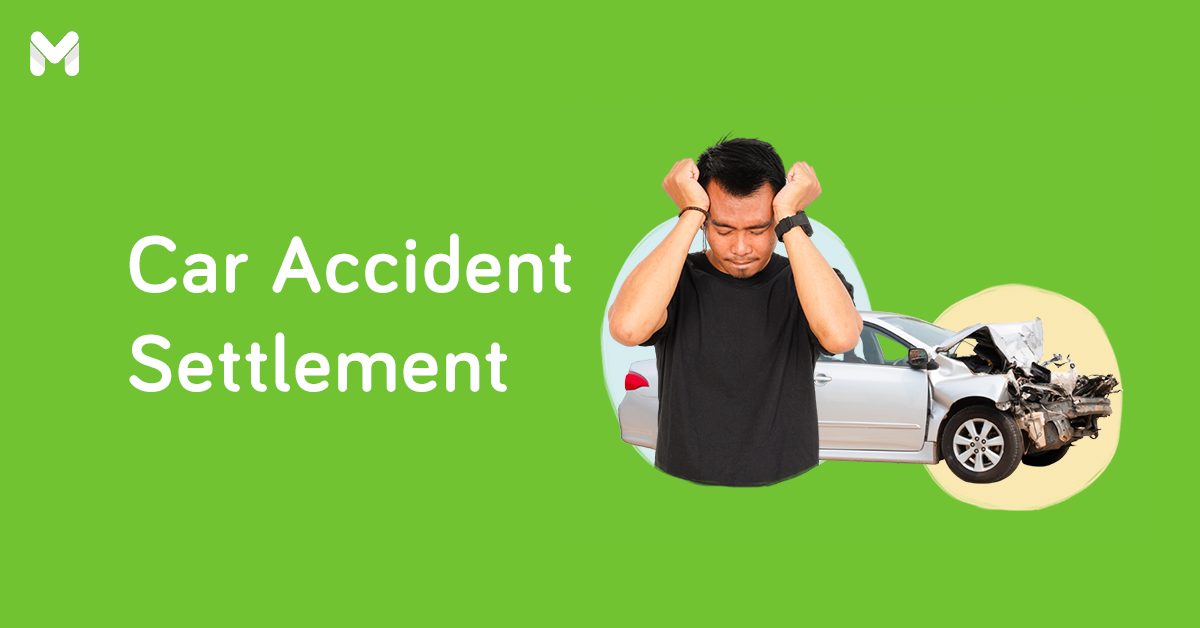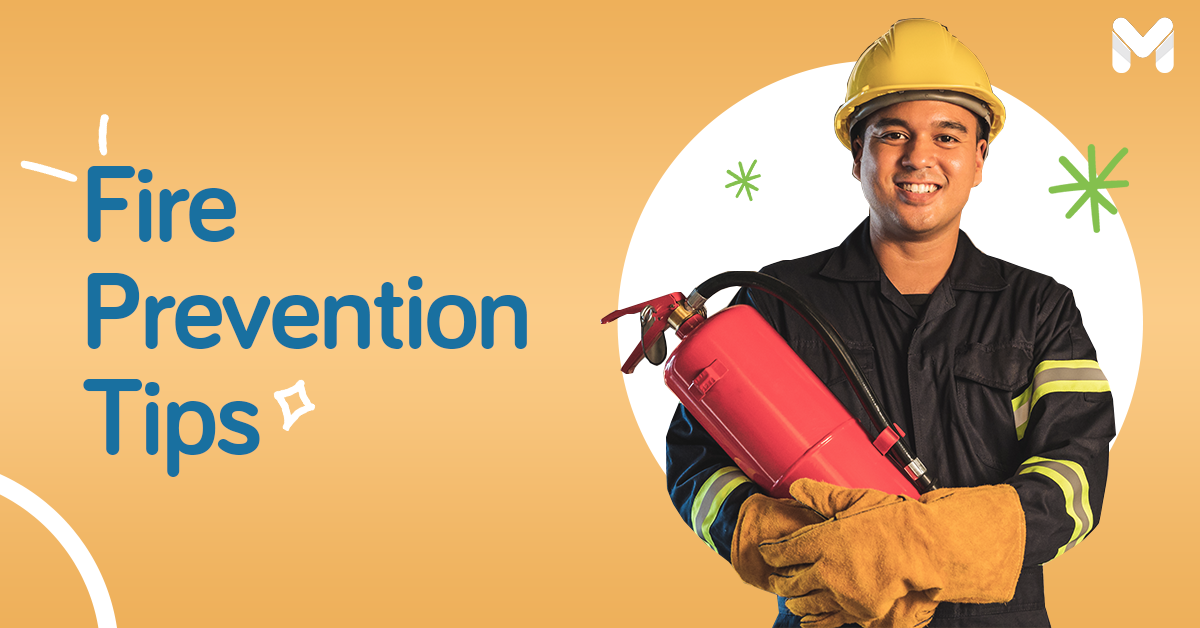Natural disasters can happen anytime. We like to think that our homes are safe and strong enough to withstand the wrath of typhoons, earthquakes, and volcanic eruptions. But what if they're not?
Nobody wants to get caught unprepared. So how should we prepare for natural disasters? What precautions should we take?
How to Prepare for Natural Disasters
It's very easy to panic at the mere mention of natural disasters. Although we can't stop a natural phenomenon from happening, we can save lives and protect properties by knowing how to prepare for disasters such as volcanic eruptions, earthquakes, tsunamis, and typhoons.
👉 Identify Types of Disasters That Can Affect Your Area
-Oct-10-2023-10-41-24-4370-AM.png?width=674&height=449&name=Pics%20for%20blog%20-%20600x400%20(3)-Oct-10-2023-10-41-24-4370-AM.png)
Before you even ask how we can prepare against natural phenomena, you must first know potential disasters that can happen in your area.
For example, if you live in a coastal, low-lying, or flood-prone area, incessant rains, flash floods, storm surges, and tsunamis can affect your property and endanger lives. The same goes for when you live near an active volcano, like Taal, Mayon, or Pinatubo. You have higher chances of being affected by possible eruptions and their aftermath.
Knowing your vulnerability can help you decide how to move forward with your preparation for natural disasters.
👉 Always Stay Informed
An important step in disaster preparation is awareness of what's going on around you.
Read the news to be in the loop. Make sure that your phone can receive emergency alerts from the National Disaster Risk Reduction and Management Council (NDRRMC).
Official forecasts, warnings, and advisories from reliable sources will help you know what to do before a disaster strikes. It can also save your life and property—not to mention prevent you from sharing fake news that will only spread fear and panic.
👉 Find Safe Places in Your Home
Unfortunately, not all houses are 100% disaster-proof. There's no predicting how much damage a natural disaster can cause.
When possible and necessary, evacuate. But if circumstances prevent you from doing so, you should know how to act accordingly.
In case of an earthquake, keep yourself and your family safe by going under the sturdiest table or furniture. If you live in a high-rise condo, stay away from the windows, doors, and anything that can fall.
Meanwhile, during heavy rains, unplug appliances in the kitchen and electronics in other rooms before floodwater enters the house. Make sure not to touch electrical equipment with wet hands.
Read more: Typhoon Safety Tips: What to Do Before, During, and After a Calamity
👉 Create a Disaster Plan
-Oct-10-2023-10-46-00-1937-AM.png?width=674&height=449&name=Pics%20for%20blog%20-%20600x400%20(4)-Oct-10-2023-10-46-00-1937-AM.png)
Reduce panic among your family members or even your neighborhood by creating a disaster plan. Wondering how to create and what should be in a disaster plan?
Red Cross' guide to creating a plan involves just three steps:[1]
- Discuss how to prepare for and respond to the most common types of disasters in your area.
- Set a place outside your home or neighborhood where all of you can meet up after a fire, earthquake, or typhoon in case you can't return home.
- Create a family communication plan, like calling one phone number to update everyone else on your whereabouts or situation. The phone number should be posted somewhere in your house where everyone can see it. It should also be easy to remember.
- Don't forget to make emergency plans for family members who have special needs, such as children and the elderly. Make sure to include your pets in your disaster preparation plan, too.
- Identify each member's responsibility. Discuss how you can work together as a team.
- Practice your disaster plan, from grabbing your disaster kit, driving to your evacuation center, and even finding alternate routes.
👉 Always Keep Your Communication Lines Open
Storms can be forecasted and monitored, and fires can be prevented. But it's harder to accurately predict when earthquakes and volcanic eruptions will happen. This is why it's important to always keep your communication channels open.
Make sure your phones and tablets are fully charged so others can contact you and give you the latest updates on what's happening.
Your phone is your lifeline in an emergency situation. Use it to communicate with loved ones or to call for rescue or medical help.
👉 Prepare a Disaster Supply Kit
-Oct-10-2023-10-47-29-0650-AM.png?width=674&height=449&name=Pics%20for%20blog%20-%20600x400%20(5)-Oct-10-2023-10-47-29-0650-AM.png)
Your disaster supply kit should contain essentials for emergency cases. It should always be ready, freshly stocked, and easily accessible. Your emergency supplies should also be enough to sustain you and your family for at least 3 days.
- Around a gallon (3.78 liters) of water per person per day
- Food such as crackers, cereals, and canned goods in easy-to-open cans
- Food for kids
- Baby’s needs
- Battery-operated radio or TV for news
- Flashlight with extra batteries
- Blankets and sleeping bags
- Hygiene kit with antibacterial soap, alcohol, sanitary napkins, etc.
- First aid kit
- Medicines
- Important documents in a plastic envelope
- Money in seal
In the past few months, news outlets in the Philippines reported on the possibility of Mayon and Taal Volcano eruptions almost daily. In case you live near those areas, you'll need to add a few more things to your preparedness kit:
- Respiratory breathing protection (such as N95 masks)
- Goggles (or any eye protection)
- Sturdy shoes
- Extra sets of clothing
Related article: Prepare These Typhoon Emergency Kit Items for the Rainy Day
👉 Save Up for Emergencies
-Oct-10-2023-10-49-00-9458-AM.png?width=600&height=400&name=Pics%20for%20blog%20-%20600x400%20(6)-Oct-10-2023-10-49-00-9458-AM.png)
No one knows exactly when or how natural phenomena could strike. The only thing we know for sure is that we're going to be affected in some way.
That's why we need to save money in case of a possible job loss, house repair, disability, or even death. Yes, it's difficult to save if you're barely making ends meet as it is and have too many bills to pay. But you'll regret it even more if you get hit by a natural disaster you have no emergency fund to help you get back on your feet.
So don't wait for a super typhoon or a volcanic eruption to happen first before you start saving.
Looking for tips specific to certain disasters? Aside from the general tips above, check these out:
📌 How to Prepare for an Earthquake
- Check your house for any hazards that can fall, such as chandeliers, and secure them properly. Heavy objects such as vases should be placed on lower shelves. Don't leave picture frames or mirrors hanging near beds or tables.
- Check for any faulty electrical wiring or gas connections, which can cause fires.
- Keep flammables such as pesticides in closed cabinets.
- Consult an expert regarding your house's structural integrity.
- Make sure every family member knows what to do during an earthquake—which is to drop to the floor, find cover under a sturdy piece of furniture, and hold the position until the earthquake stops. Note that foreshocks and aftershocks may occur.
- Check what your insurance policy covers should your house be damaged.
📌 How to Prepare for Volcanic Eruption
- Fill up your vehicle's gas tank in case of evacuation. Alternatively, check with authorities for other transportation methods.
- Cover your other vehicles—ash fall can damage them.
- Use duct tape to seal your doors and windows to prevent ash from getting in. It can irritate the respiratory system, eyes, and open wounds.
- Turn off electric fans and air conditioning units to avoid drawing in polluted air from outside.
- Stock up on your water supply as ash can contaminate it.
- Consult a doctor if you have existing respiratory difficulties.
- Check what your insurance policy covers should your house be damaged.
📌 How to Prepare for Storms and Flooding
- Clear your yard of anything strong winds could blow away, such as lawn furniture and bikes.
- Trim tall trees. Check with your local government unit (LGU) on the required permits for this.
- Cover up your windows and doors using storm shutters.
- Fix any damaged tiles on your roof. Clean your gutters to prevent water from pooling and seeping inside the house.
- Prepare to switch your power off in case of flooding.
- Stock up on your water supply.
- Check what your insurance policy covers should your house be damaged.
Final Thoughts
These disaster preparedness tips can help you keep a clear head during a crisis. Knowing how to prepare for natural disasters can prevent injuries and loss of lives. After all, rescue or medical help won't always be immediately available—we need to be self-sufficient.
Although there's not much we can do when Mother Nature strikes, a bit of preparation can mitigate its impact and help us cope with the aftermath.

Source: [1] Disaster Preparedness Plan









